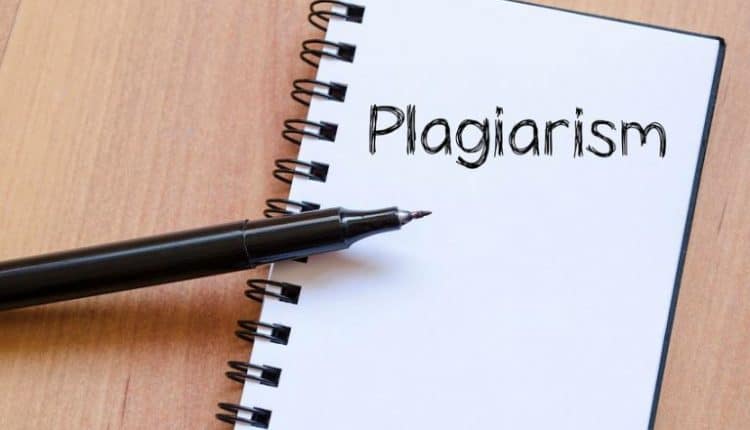Legal Defenses against Plagiarism Accusations

Introduction
When facing plagiarism accusations, individuals may employ legal defenses to challenge the allegations and protect their rights. While plagiarism is generally viewed as an ethical offense, there are instances where legal arguments can be raised to contest the accusations. This article explores some of the possible legal defenses that individuals might employ when facing plagiarism accusations.
Lack of Originality
- Independent Creation: If the accused individual can demonstrate that their work was independently created and not derived from the alleged source, they may argue that there was no plagiarism. Providing evidence of their own research, notes, or drafts can support this defense.
- Public Domain: Works that are in the public domain can be freely used without permission or attribution. If the accused can establish that the alleged source was in the public domain at the time of creation, they may argue that no plagiarism occurred.
Fair Use Doctrine
- Transformational Use: Fair use allows for limited use of copyrighted material without permission in certain circumstances. If the accused can show that their use of the alleged source falls under fair use, such as for criticism, commentary, or educational purposes, they may have a viable defense against plagiarism allegations.
- Amount and Substantiality: Fair use considerations include the amount and substantiality of the portion used. If the accused can demonstrate that they used only a small portion of the alleged source or that the portion used was not significant, they may argue that it does not constitute plagiarism.
Lack of Intent
- Unintentional Plagiarism: Accidental or unintentional plagiarism may be a valid defense if the accused can show that they genuinely believed they were not committing plagiarism. They may provide evidence of their good faith efforts to attribute sources properly and cite their references.
- Insufficient Knowledge: If the accused can demonstrate a lack of knowledge about proper citation practices, especially if they are new to academic or professional writing, they may argue that their actions were the result of ignorance rather than intentional plagiarism.
Insufficient Evidence
- False Accusations: If the accused believes that they have been falsely accused of plagiarism, they can challenge the credibility or accuracy of the evidence presented against them. This may involve scrutinizing the alleged source and highlighting inconsistencies, errors, or lack of conclusive evidence.
- Inadequate Investigation: The accused can question the thoroughness and reliability of the investigation conducted by the accuser or institution. This defense challenges the integrity of the process and seeks to cast doubt on the validity of the plagiarism allegations.
10 Reasons Why You Should Not Plagiarize
There are various benefits of not plagiarizing and these can be ultimately counted as the 10 reasons why you should not plagiarize. Ever since the exposure to the internet has increased, there has been a huge audience that instead of using it positively tends to exploit it. People who plagiarize and copy other people’s content are also part of these types of people. The following are 10 reasons why you should not plagiarize
1. Reputation Damaged
Either as a student or a professional in the writing industry, any sort of plagiarism can harm your reputation. Teachers and faculty are likely to view students negatively. Professionals in content writing risk their reputation if they plagiarize.
2. Lack Of Opportunities
Plagiarism harms reputation and reduces opportunities for career and academic growth.
3. Time Wastage
As time goes and the technology progresses every day, there are lots of tools available on the internet which can detect even 0.1% of plagiarism.
4. Wasted Grade
For students, this is an even more disadvantageous process. This means that there will be no second chances to rectify that grade or work on the already plagiarised content to make it better.
5. Monetary Fines
It depends on institutes to institute but sometimes this is a penalty too. If someone is caught plagiarising, in addition to their losing their work or grade, they might even have to pay a monetary fine. This fine can get high depending on the level of plagiarism and the seriousness of the situation.
6. Expulsion or Firing
In academic and professional life, the consequences of plagiarism can be quite severe. Some institutes and workplaces have it in their rules that anyone caught plagiarising on their final reports or work submissions can be subject to expulsion based on the intensity of the situation. In such cases, it is even more difficult to get another job or admission to another educational institute because no one would want such an employee or student.
7. Legal Consequences
One question that everyone keeps bringing up is what legal punishments are there for plagiarism. Well, there are a few. Punishments for plagiarism on an academic level can get as intense as expulsion but those in the professional field have it worse. Copyright infringement can easily land an induvial in a court case.
8. Lack Of Creativity
People who get into plagiarism are simply using someone else’s work and passing it off as their own. This means they are using as little of their imagination as they can.
9. Laziness
This gives birth to laziness and hence decreases the productivity levels by a tenfold. By working on your own, one can get smarter get more outcomes and avoid laziness. This is one of the various benefits of not plagiarizing.
10.Subject To Trouble
Lastly, plagiarism when caught can make the authorities extremely annoyed. If time management is done, the work could’ve been done wonderfully without the need for plagiarism.
Conclusion
It is important to note that legal defenses may vary based on jurisdiction and specific circumstances. Understanding possible legal defenses can assist individuals in protecting their rights and presenting their case when faced with plagiarism accusations.




